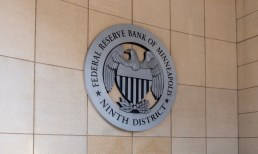The launch of Paysafecash, an eCash solution, will try to combat financial inequality as many Americans prefer to use cash over solutions like credit or debit. Paysafecash, the release stated, will help the 22 percent of Americans with no bank accounts or who are underbanked according to the Federal Reserve’s research.
Many of them don’t want to share finance information online or simply don’t need an account, the release stated. The pandemic has only bolstered the need for new ways to pay as customers want to avoid long, crowded lines to mitigate the risk of the virus.
Paysafecash offers a new way to pay online bills or conduct eCommerce, in which the customer can select the participating brand at checkout, print a barcode or store it on their mobile phone, and then make cash payments at partnering stores in InComm Payments‘ Vanilla Direct network, including 7-Eleven, Dollar General, Family Dollar and other discount stores, pharmacies and more, the release stated. Once the barcode is scanned and a balance is paid in cash, the transaction is complete.
Udo Müller, CEO of paysafecard, the team behind Paysafecash at Paysafe, said the trends in payments right now make the service necessary.
“Against the backdrop of the converging trends of cash loyalty and a rising need to transact online, we feel there is strong consumer demand in the U.S. for our Paysafecash solution,” he said in the release. “We’re proud to bring to the market an eCash product that will allow underbanked and unbanked Americans to participate in the digital economy and prevent financial discrimination against the cash consumer.”
Advertisement: Scroll to Continue
Paysafecash launched in 2018 and is now live in nearly 30 markets around the world, according to the release.
In separate news, Paysafe has been gearing up for a special purpose acquisition company (SPAC)-fueled initial public offering (IPO) for $9 billion, PYMNTS reported, which is likely to raise around $1 billion for new equity to help the transaction.




